Whether you are the type who loves pre-trip research, or the type who prefers to just wing it upon arrival, the issue of how long to stay in each place is a major one. We all want to maximize our time in the better places when on multi-stop trips, but figuring out which those are isn’t quite so obvious on your first visit to any part of the world.
Some of the best and most famous tourist cities on the planet are actually best visited in one well-planned day, while many others require 3 or 4 days to even feel like you are scratching the surface. Having been around the world a couple of times while studying these places as I go, I’ve sorted out some “best practices” on itinerary planning.
And lately I’ve been answering dozens of questions for readers in both the Europe itinerary planning and Eurorail Pass articles, so hopefully this will be of use for those going through the process soon.
>>>Germany itinerary suggestions
>>>France and Italy itinerary suggestions
How to figure out how long to stay in each city
If you are forming an itinerary for a multi-stop trip, the tips below should help you confidently make a plan you’ll enjoy.
Move as slowly as you can allow yourself to
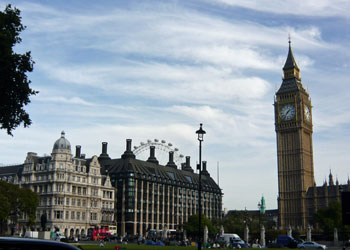
Many of the specific reasons are outlined below, but to sum it up, you’ll have a better time if you remember that it’s supposed to be a vacation and not a race. If you try to visit a major city in only a day or two you’ll mainly be left with the knowledge that you ended up skipping a long list of worthwhile things. Most likely you’ll have future trips to see the next set of cities, so it’s unwise to plan as if this is your only chance.
For major cities, 3 nights is a minimum, and 4 or 5 is better
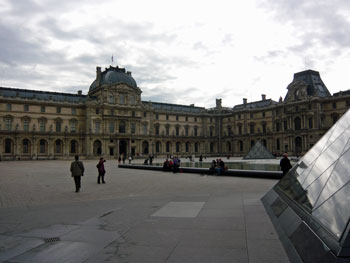
Most other cities deserve a minimum of 2 nights (although 3 is often better). As we’ll discuss below, your travel days will almost never be fruitful sightseeing days, and traveling every other day gets tiring in general.
For compact cities, 2 nights can be long enough

European examples of this include Dublin, Edinburgh, Cologne, Munich, Nice, Copenhagen, Krakow, Budapest, Bratislava, Belgrade, Naples, and most cities in France and Spain except for the largest ones. There are dozens if not hundreds more just within Europe, and you can often tell which they are when you look at a map of hotels or hostels and discover that most of them are clustered within a couple square miles or so in the center.
A few famous cities can be done in 1 night, but only if you plan well
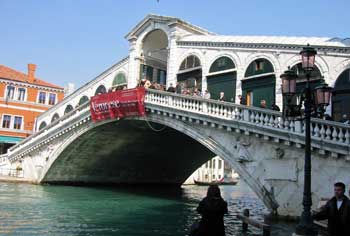
Cities like these tend to be insanely crowded from about 10am until 6pm because they are filled with day-trippers on bus tours. Some of them, most notably Venice, are also very expensive, so most budget tourists stay outside of the city if they stay in the area at all.
So the one-night strategy is this:
Arrive early, hopefully by noon, and check into a hotel or hostel in as central a location as you can afford. Then see the sights for a few hours until you tire of the extreme crowds, and go back to your place for a rest. About 6pm, head out again to discover you will soon have the city almost to yourself, and walk around enjoying the scenery before dinner and maybe a couple drinks into the late evening.
The following morning, wake up early and see whatever leftover checklist sights you missed the first day, and come back to check out of your hotel when it gets too crowded again. By noon or so, you are off to the next place, where you can catch your breath and slow down again.
Day trips to small and/or expensive places are good strategy
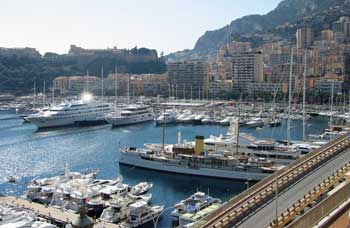
Famous examples of this are seeing Monaco and Cannes (both expensive) while staying in relatively inexpensive Nice on France’s southern coast. You can visit Pisa (which is only worth a couple hours) while staying in Florence, and you can visit many interesting places while staying in Paris. The point is, when places look close together on a map, investigate the day-trip strategy.
Mix shorter stays with longer ones every week
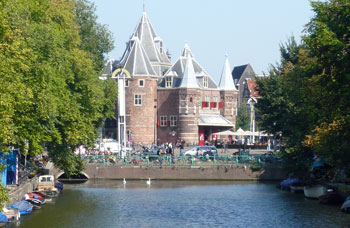
One time I had a Eurail Pass and I did 11 cities in 17 days (including stopping in Munich for 6 hours during Oktoberfest on my way to Innsbruck), and it was ridiculous. As relaxing as trains can be while they are moving, being on them several times per week gets exhausting, and flying is even worse.
Research flight or train durations before adding too much
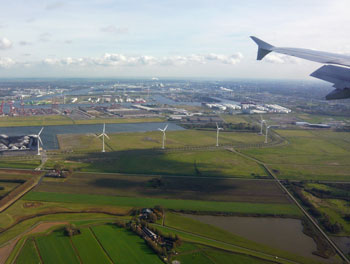
So whether it’s a 12-hour train ride or even a 1-hour flight where you have to get to the airport two hours early and then take another 2 hours getting into town after you land, days like these can be pretty much written off for sightseeing. By the time you arrive you’ll be disoriented and exhausted, so having dinner near your hotel or hostel might be all you’ll be capable of. The point is, on flight or long train ride days, add another night in order to see the new city properly.
If money is an issue, check our price indexes and plan accordingly
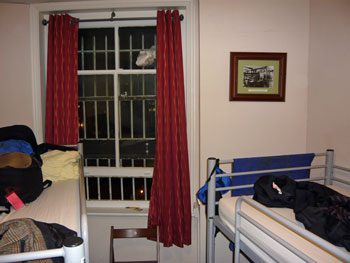
Hopefully you are already aware of the Backpacker Index, which calculates typical expenses for budget travelers and backpackers. The Europe Backpacker Index ranks 47 cities by price, with the cheapest only costing a quarter as much as the most expensive. There is also the Europe 3-star traveler Index, which does the same thing for mid-range travelers. The Asia Backpacker Index ranks the most popular destinations on that continent, which are also the cheapest in the world.
Don’t plan itinerary stops just because you’ve heard of a place
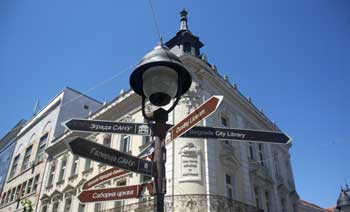
You might even ask yourself, with each city on my list, can I form at least a sentence or two on exactly why I am going there? Do you know of specific attractions you don’t want to miss, or is there a certain local food you’ve been intending on trying? If you can’t come up with something concrete about each place, it’s time to research and consider cutting it. Good examples of cities like this are Frankfurt, Brussels, Rotterdam, Dresden, Bratislava, Belgrade, Zagreb, and even Milan. I’ve stayed in all of those, but I wouldn’t recommend any of them for a first visit to Europe unless you have particular reasons.
If you plan to move quickly, better to wing it than lock it all in
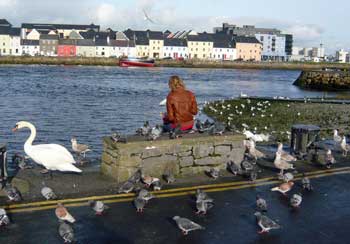
The best favor you can do for yourself if you want to try something like this is to lock in the first 2 or even 3 destinations with hotel reservations and transportation, and then evaluate the rest of it as you go. In other words, please don’t buy airline or train tickets all in advance for such a wild itinerary. If by Day 11 you’re really enjoying your 3rd or 4th city, you don’t want to have to keep racing to the next ones just because it seemed like a good idea when you were at home a few months before.

Hello Roger, I am planning my first solo trip to Europe from USA and I was so excited to come across your page. My itinerary is below and I was thinking of maybe 21 days but not sure it’s reasonable with the number of cities I want to visit. How many days you think would be ideal for the entire trip?. I have family in London so I was planning to stay with them the first 3 days and then purchase a Eurail pass for the rest of my trip and possibly fly out via Paris. Would you recommend flying into London and out through Paris or should I fly into Paris and leave through Barcelona as my last stop? If you have any recommendations for budget friendly places to stay within these major cities please let me know.Thanks
France – Paris ?
London 3 days
Germany – Berlin? munich
Czech Republic – Prague?
Italy – Venice (2 days) Florence (4 days) Rome (3 days)
Monaco – Nice?
Spain -Barcelona?,Madrid?
Carol,
I’ve actually got a newer version of this article where I strongly come out in favor of staying 3 nights in almost any European city that you visit. London and Paris are both so large and packed with sights that 4 nights is even better, but 3 nights is enough if you are in a hurry. Venice is small enough to actually enjoy in about 24 hours, but almost all other famous cities are too large to appreciate in two nights because that’s really just one full sightseeing day and it’s hard to do much sightseeing on your arrival or departure day.
As for southern France I’d stay in Nice and visit Monaco (and possibly Cannes) as a day trip since it’s only about a 20 minute train ride from Nice in either direction and Nice is much cheaper.
Berlin is the most interesting German city for sure. If you don’t have time for Munich (they are fairly far apart) you can save it for next time. But Munich is also very nice and very different.
Three nights in Prague is ideal. You can enjoy Florence in 3 nights and Rome as well. One nice thing about those cities is that they are about two hours apart by high-speed train, so it doesn’t take a huge chunk of your day to get there or get to the next one.
You might want to save Spain for a future trip where you’ll have more time. Madrid and Barcelona are both amazing and both very different, but you’d have to fly in and fly out because the train service in and out of the country isn’t great. You can actually take a train from Paris to Barcelona in about 7 hours and that would be more enjoyable than flying. Still, there are many other great places to see in Spain so I’d probably save them for a future trip where you can spend 2 weeks in Spain and Portugal.
If you can find a good airfare flying into London and out of Paris, that would be ideal, but in my experience those open-jaw tickets are much more expensive and it would be cheaper to go back to your starting point with a cheap flight and then fly home. You might also consider doing London to Paris to Amsterdam to Berlin to Prague and then fly to Italy or southern France. If you add Amsterdam (which is amazing) you can do it all on train. Otherwise you’d have to fly into Berlin and then onward to Prague. I’m happy to help more as you are sorting this out. -Roger
Hi Roger,
I just wanted to see your opinion. I was planning on travelling around spain for about 3-4 weeks. I was planning on visiting around 11 different cities. Do you think that’s enough time?
The cities were
– Cordoba
– Malaga
– Granada
– Alicante
– Valencia
– Zaragoza
– San Sabastian
– Gijons
– Seville
Would love your opinion!
Thankss
Lucy,
My usual recommendation is to allow 3 nights for almost any city you visit. So 21 to 28 days would allow for 7 to 9 cities or so. But you have listed many smaller cities that aren’t too far apart, so I think 2 nights in many of them will be enough. So yes, I think your plan will work, especially if you organize the list in the most efficient manner. Keep in mind that Spanish trains don’t go everywhere and in some cases you have to transfer in Madrid, but it’s the main spoke in the network. The good thing is that bus service in Spain is really good and affordable, so it will be your best option in many cases. Let me know if you have any other questions. -Roger
Hi, I stumbled on your page and absolutely love your tips and advice. My husband an I are looking at a trip November 1-17 (arriving in the morning on November 2nd and leaving early afternoon on the 17th). He spent a summer in college leisurely touring much of Europe, and I have never been. We need to fly both into AND out of Paris (our city now has non-stop flights and it’s less than half the price of two one-way tickets to go in and out of different cities).
Definites on our list are Paris, London, and Rome. I am hoping maybe we can pick one other city to spend one or two nights in. I was thinking of Florence because my husband loved it so much on his trip.
My questions are: 1) Do you think we could squeeze in a fourth city without feeling like we gave up too much time in the others? 2) Would you agree with Florence as a good option, or suggest Amsterdam, Switzerland, or somewhere else instead? and 3) How would you divide up time?
I so appreciate any advice you can offer! Thank you!
Jana,
I’m happy you find this useful. I actually have a newer version of this article that focuses more on how three nights is the optimum amount of time to stay in each European city for those trying to see as much as possible.
Since you’ve got 15 nights to work with you’ll definitely have time for four cities, and actually time for a fifth quick one if you like. You could do Amsterdam or Switzerland, but since you’ll definitely go to Rome I think it would be best to save those for a future trip and spend a bit more time in Italy. Here’s what I’d recommend:
Fly into Paris and spend 4 nights there. Then fly from Paris to Venice (or nearby Treviso Airport) in the morning and spend about 24 hours in Venice. Then take a short train ride to Florence and spend 3 nights there. Then take a short train ride to Rome and spend 3 nights there. Then fly to London and spend 4 nights there. Then take the Eurostar train from London to Paris in the morning before your flight home from Paris that afternoon. You can get more detailed information about the Italy stops on my article about best Italy itineraries. Venice is small enough and so crowded that it’s easy to see and enjoy in about 24 hours, and the longer you stay the more you’ll get tired of the crowds.
For the flights and Eurostar train it’s cheapest if you book at least 2 or 3 months in advance. The Italian train tickets are also cheaper if you book early, but a month or so in advance should be good enough. Let me know if you have any other questions. -Roger
Hi Roger!
Thanks for the helpful tips in your article. I was wondering if you could offer some advice on my husband & I’s planned itinerary for 21 nights in Europe probably around October this year. We are thinking of doing London 3n, Paris 4n, Cologne 4n, Venice 2n, Florence 4n & Rome 4n. My husband is concerned this will be a bit too rushed & not long enough in each location & that we’d be better to drop an Italian city to spend a bit longer in the other places. We are both more interested in seeing Venice & Florence over Rome, but also ditching Rome on our first trip to Europe feels like we’d be missing a big part of Italy. We do feel like it will be a big busy city & not necessarily the best place at the end of our trip though. What would you recommend? I know that this is no-where near as packed as some other travellers fit into 3 weeks, but also that with travel time (trains mainly except probably flying Cologne>Venice) we don’t want to feel like we haven’t had time to properly enjoy a place before moving on. Would love your thoughts.
Thanks!
Ell,
I’m glad to hear that this is helpful. Interestingly enough, even though I’m an advocate of “fast travel,” in these comments I still spend most of my time encouraging people to slow down a bit. In your case I feel like you could actually move a bit quicker if you wanted to.
First off, 3 nights in London is enough, but if this is your first visit there I’d probably recommend 4 nights because it’s a huge city packed with great things to see and do. Paris in 4 nights is perfect. Cologne, on the other hand, is a bit of a head-scratcher. I am wondering if you have family or friends there? Or perhaps some other reason for spending so long there? For the typical first-time visitor the main highlights are the amazing cathedral and the lovely Old Town, both of which are right next to the main train station. It’s one of the few cities that you can actually experience in 24 hours or so without feeling like you are missing much. They have famous beer and Christmas markets, but aside from those things it’s not a big draw.
Venice is an interesting city to visit because it’s amazing and unlike anything you’ll ever see, but it’s also annoyingly crowded from about 10am until 5pm every day, so many people are happy to stay about 24 hours and then move on. It’s a bit like going to Disneyland where it’s breathtaking and by the end of the day you are glad to be going home and don’t want to return the next day. Two nights there is lovely though, and I encourage you to stay ON the main island because it’s magical before 10am and after 5pm when the crowds are much thinner.
Four nights in Florence is fantastic. You’ll be able to see the main sights in two days or so, which will leave you time for a day trip to Pisa and/or Siena and/or one of the nearby hill towns.
Usually I recommend 3 nights in Rome for the reasons you mentioned. It’s honestly a chaotic city that tires people out more than most other places, but it’s also packed with some of the world’s best attractions, especially the Vatican Museum and St. Peter’s Basilica. As long as you pace yourself you’ll have a wonderful four days there.
As always, let me know if you have any other questions. -Roger
Hi Roger:
I am planning a 2 week tour of Europe with family (me, my wife and two young boys 8 and 11) in June 2019. I am happy with the first part of my itinerary (covering France and Switzerland) up to Day 7 when I would be in Lucerne; and on Day 12 I need to be back in Paris. Between Day 8-12, my Plan was to cover 4 destinations @ 1 night each: INNSBRUCK, BERLIN, AMSTERDAM and BRUGES. I should mention, I’ll be travelling on Eurail pass. But your write up motivated me to reconsider this leg of the journey. Would you recommend me to drop one or two cities? Which ones?
Arman
Arman,
That sounds like a great trip, but I’d DEFINITELY recommend dropping two of the cities. Even two nights each is really rushing since the trip between them will take most of a day. I’ve actually written a newer version of the article above where I go into more detail about why I think 3 nights is the sweet spot for a fast-moving trip.
In your case the choices are pretty easy. Innsbruck is mainly a ski resort town and there isn’t much to see there unless you’ll be on the slopes yourself. Salzburg, on the other hand, is wonderful and filled with great sights and scenery. So drop Innsbruck. And also drop Bruges. Bruges is basically a smaller and more quiet version of Amsterdam and it was built in the same era. On longer trips I think Bruges is a nice stop because it’s mellow and there are some different things there, but it looks very much like Amsterdam except it doesn’t have the blockbuster sights that Amsterdam has.
The train ride from Switzerland to Berlin will be a long one and you might even consider Munich instead to save some time. Of the two cities I think Berlin is more interesting, but Munich is also very nice and it would save you many hours on the trains. Amsterdam is only a bit over 3 hours back to Paris on the high-speed train. I think there is a supplement for Eurail Pass holders, though it’s still a great journey and worthwhile. Let me know if you have any other questions. -Roger
This is a difficult one for me I think. Starting first week of December I’ll be solo backpacking 6 months in Europe. it’s something I’ve never done before and In fact I have only ever been abroad once in my life and that was to Berlin, Germany, for 9 days. After 7 days I started to get tired due to the immense amount of walking around I was doing per day (7+ hours it felt like). I decided after the 7th day to extend my stay for two days but I kind of just wanted to rest in my hostel and not really do much.
I plan on going to Bratislava, Prague, Budapest, Belgrade, Sarajevo, Podgorica, Tirana, Pristina, Skopje, Sofia, Bucharest, Chisenau(maybe), Kiev, Krakow and Vilinus.
(With potential trips to other parts of the country outside the main cities, but I’d prefer to look into that when I am physically there so haven’t planned that extensively).
A lot of these places you could spend mere days in according to a lot of people due to their relative size and number of attractions among other factors. For example that works out at around 12 days per country, which for some of these might seem like a ridiculously long period.
The interesting thing about it all however, i find, is that I don’t know what is considered a decent amount of time to spend in these places, and that in particular is what I find exciting in planning this adventure, because it will all be new to me. For all anybody knows, someone might say 2 days is enough for Skopje, but I could arrive in Skopje, fall in love with it and decide to stay there for 3 weeks. In contrast, someone might say one week is good for Prague but I might find it boring and decide to move on after a few days.
going to Europe for the 1st time sept 1-21 what do you think of this itinerary? fly to london rail to paris then fly to barcelona,rome,prague,amsterdam ,fly home from frankfort is it to much am i missing someplce on the way that i should see? I dont mind being on the go what do you think? please let me know thanks
Jarrett,
Six cities in 21 days is actually a pretty leisurely pace and you might be able to add one more. Those are all great cities so I think the plan looks good. You can take a train from Paris to Barcelona and it takes just a bit more time than flying but it’s also far more enjoyable because you don’t have to do all the security and airport hassle. You could add Berlin between Prague and Amsterdam and take trains between them and then a train to Frankfurt for your flight home, but flying from Amsterdam to Frankfurt is probably better since you’ll need to be at the airport anyway. I typically recommend 3 nights in each city if you want to travel quickly, so your plan would give you 3 or 4 nights in each city, which is great. I think it looks good and let me know if you have any other questions. -Roger
Thanks for this article!, it really helps me a lot for my upcoming trip to Europe, do you think 5 main cities (Barcelona, Lisbon, Prague, Capadoccia, Rome) and 2 1-night stand (Rothenburg, Innsbruck) is too much for a 19-day trip?
Juan,
I’m happy to help. The places on your list are all really good choices, but it’s an odd collection because none of them are near each other. You’ll not only have to fly between all of them, but there are some long and complicated flights in there. If you have 19 days I’d highly recommend trying to choose a group of cities that are all connected by train rides of 6 hours or less. Taking trains between European cities can really add to the trip because you get to see so much of the countryside and scenery, and it’s an almost zero-stress way to travel. But flying in Europe is as much of a hassle as it is anywhere in that you have to take public transport out to the airport and then go through security and wait around a lot. If you did those cities on your list you’d spend between 5 and 9 hours every third day with the flights and airport transportation.
Also, Innsbruck is a wonderful ski area, but the city itself is pretty dull and I wouldn’t recommend it unless you are skiing. Salzburg is much more interesting, and Rothenburg ob der Tauber is really nice as well, and small enough to enjoy in a day.
So again, if you don’t mind spending a third or more of your vacation in airports and such, you could do what you have planned. But I really think it would be FAR more enjoyable if you kept the number of flights down to 1 or 2. Cappadoccia is an amazing place and Goreme is the coolest town there to stay, but it would require at least two flights in and out, as you’d probably have to change planes in Istanbul. I hope this helps and I’m happy to answer other questions if you have them. -Roger
The only reason I commented was that some of the cities on the list are ones that I’ve actually been interested in for a long time. I totally get what you are saying though.
The skipping itinerary part made me sad because a lot of those cities are actually places I really want to go to! What is wrong with them? I love Europe and want to see as much of it as I possibly can!
Nia,
Nearly any city in Europe will be interesting, but some famous cities aren’t nearly as interesting as others. The classic example is Frankfurt, which is famous because it has Germany’s busiest airport and it’s also the home to most German banks. But as a tourist city it might rank no higher than #10 in Germany. For one thing, many European cities were destroyed by bombs in WWII, and some were rebuilt with generic brick buildings and glass towers that could be anywhere in the world. But other cities mostly survived intact or were rebuilt to resemble how they were before the war.
My main point is that you shouldn’t visit a city just because you’ve heard the name many times. You should visit if there are specific things there you want to see and do. If you have things you want to see in Frankfurt then by all means go and you’ll enjoy it. Just don’t go to Frankfurt because it’s a large city with a big airport. -Roger